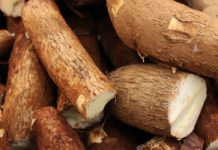Mistakes to Evade on a Vegan or Vegetarian Diet
When following a vegetarian or vegan diet, it is important to avoid making the following mistakes.
A well-balanced vegetarian or vegan diet can have a number of beneficial effects on one’s health.
There has been evidence that these diets are connected with weight loss, a decreased risk of heart disease, improved blood sugar control, and a lower risk of certain forms of cancer.
Maintaining a well-rounded vegetarian diet that contains all of the nutrients your body requires, on the other hand, might be difficult.
This blog post investigates some of the most typical mistakes people make when following a vegetarian or vegan diet, as well as how to prevent making them in the first place.
Assuming that Vegetarian or Vegan Products Are Automatically Healthier than Non-vegan or Vegetarian Products
It is unfortunate that just because a food product is branded “vegetarian” or “vegan,” it does not necessarily imply that it is more nutritious than its conventional counterpart.
Almond milk, for example, is popular plant-based milk that is frequently used as a mainstay in vegan diets.
In contrast to cow’s milk, almond milk is low in calories, contains some key vitamins and minerals, but it is not necessarily healthier than cow’s milk.
Consider the difference between 8 grams of protein in 1 cup (240 ml) of low-fat cow’s milk and 1 gram in the same amount of unsweetened almond milk.
Sugar can be added to sweetened almond milk, which can include as much as 16 grams of sugar in a single cup of milk.
In addition to soy-based veggie burgers, nuggets, and meat substitutes, many other vegetarian products have a long list of artificial ingredients and are extensively processed in their production. As a result, they are frequently no more nutritious than other non-vegetarian processed meals.
They are often rich in calories despite the fact that they are vegetarian, and they are deficient in the protein, fiber, and nutrients required for a well-balanced diet.
While these items may make it easier to convert to a vegan or vegetarian diet, it’s ideal to consume them in moderation in conjunction with a diet rich in healthy, whole foods to get the most out of your shift.
Many meals promoted as vegetarian or vegan are typically overly processed, include a lot of added sugar, or are devoid of essential vitamins and minerals. If you decide to incorporate these goods into your diet, make sure to consume them in moderation.
Insufficient Intake of Vitamin B12
Vitamin B12 is massively required by the body for a variety of functions. It has a role in the formation of red blood cells and DNA, among other procedures.
Unfortunately, animal products such as meat, poultry, seafood, eggs, and milk products are the most common sources of vitamin B12 in the diet.
As a result, vegetarians are at a higher risk of developing vitamin B12 deficiency than meat-eaters.
Fatigue, cognitive issues, and numbness are all symptoms of vitamin B12 insufficiency. It can also cause megaloblastic anemia, which is a disorder characterized by a lower-than-normal level of red blood cells in the body.
Sadly, a high intake of folate can actually disguise vitamin B12 insufficiency, masking symptoms until permanent harm has been done to the nervous system.
Vegans and vegetarians alike can benefit from a variety of meals and supplements that meet their vitamin B12 requirements.
Other sources of vitamin B12 include fortified foods and certain forms of edible algae, in addition to animal products.
In order to ensure that their vitamin B12 requirements are met by diet alone, vegetarians should carefully monitor their consumption and consider taking supplements if necessary.
In order to sidestep vitamin B12 deficiency, vegetarians and vegans should consume fortified meals or take vitamin B12 supplements daily.
Substituting Cheese for the Meat
One of the most explicit and quickest methods to convert practically any dish into a vegetarian meal is to remove the meat and replace it with cheese. When it comes to flavor, the substitution is a good fit for sandwiches, salads, pasta, and a variety of other foods.
However, while cheese contains a significant quantity of protein, vitamins, and minerals, it does not provide the wide variety of elements found in meat and other animal products.
For example, one ounce (28 grams) of beef provides four times the amount of iron and double the quantity of zinc found in one ounce (28 grams) of cheddar cheese, respectively.
Cheese, on the other hand, contains fewer protein and calories than meat.
Despite the fact that cheese includes only about 80% of the protein present in chicken, it has nearly 2.5 times the amount of calories.
Instead of merely substituting cheese for meat, you should incorporate a range of plant foods in your diet to ensure that you are getting enough nutrients.
 Chickpeas, tempeh, quinoa, beans, lentils, and almonds are all excellent sources of protein and fiber that can be included in a vegetarian diet to round it out.
Chickpeas, tempeh, quinoa, beans, lentils, and almonds are all excellent sources of protein and fiber that can be included in a vegetarian diet to round it out.
Instead of simply substituting cheese for meat, make sure to incorporate a varied range of plant foods in your diet to ensure that you are getting enough essential nutrients.
Consuming Insufficient Calories
When it comes to vegetarianism and veganism, there are many foods and dietary groups that are off-limits, making it difficult for them to achieve their calorie requirements.
As a matter of fact, vegans and vegetarians tend to consume fewer calories than those who consume both meat and plants.
According to one study, the nutritional content of 1,475 people’s meals was examined. This included vegans and vegetarians as well as vegetarians who consumed fish, people who consumed both meat and plants, and people who consumed meat only once a week.
In the study, vegans had the lowest calorie intake of any of the groups studied, ingesting 600 fewer calories than people who consumed both vegetables and meat.
Despite eating slightly more calories than vegans, vegetarians still consumed 263 fewer calories than persons who ingested both meat and plants.
Calories are the primary source of energy for the body, and your body needs a particular number of calories in order to work properly. Extreme calorie restriction can result in a variety of adverse consequences, such as nutritional deficits, weariness, and a reduced metabolic rate, among other things.
Vegans and vegetarians have a lower calorie consumption than persons who eat both meat and plants, according to research. If you’re following one of these diets, be sure you’re getting enough calories to sustain your activity level.
Failure to Consume Enough Water
It is necessary for everyone to drink adequate water. However, people who consume a lot of fiber, such as vegetarians and vegans, may find it particularly important.
Vegetarians tend to consume more fiber than non-vegetarians because legumes, vegetables, and whole grains, which are high in fiber, are cornerstones of a healthy vegetarian diet.
According to one study, persons who consume both meat and plants consume approximately 27 grams of fiber per day, but vegans and vegetarians consume approximately 41 grams and 34 grams, respectively.
Drinking water containing fiber is significant because it can aid in the movement of fiber through the digestive tract and the prevention of digestive disorders such as gas, bloating, and constipation.
Fiber consumption is extremely beneficial to one’s health, and it has been related to a lower risk of stroke, heart disease, diabetes, and obesity, among other diseases.
Women should ingest at least 24-25 grams of fiber per day, while men should ingest at least 38 grams, according to current recommendations.
Drink when you’re thirsty and spread your water intake throughout the day to ensure that you’re staying hydrated.
Vegans and vegetarians typically consume a high amount of fiber. Increased fiber intake is related to a number of digestive disorders. These include constipation and gas. Drinking enough water can help prevent these difficulties.
Ignoring the Importance of Iron
Several essential vitamins and minerals, including iron, can be found in high quantities in meat.
Example: A 3-ounce (85-gram) portion of ground beef provides 14 percent of the iron you require for the entire day.
Additionally, beef includes heme iron, which is a form of iron that your body can readily absorb.
It is non-heme iron that is found in plant sources of iron, and it is not taken in as readily by the body as heme iron. Non-heme iron can be found in a wide variety of foods, including fruits, vegetables, cereals, and beans.
As a result, vegetarians are at increased risk of developing iron-deficiency anemia, which is a disease in which the body does not render enough red blood cells. Fatigue, shortness of breath, and dizziness are some of the signs and symptoms.
A well-planned vegetarian diet rich in iron-rich plant foods, on the other hand, can provide all of your daily requirements.
You should consume plenty of healthy sources of iron if you are vegetarian or vegan, such as lentils, beans, fortified cereals, nuts, seeds, oats, and leafy greens. Lentils and beans are particularly rich sources of iron.
It is also possible to increase the absorption of non-heme iron by combining iron-rich diets with foods that are high in vitamin C.
 Including salad, a vegetable side dish, or a piece of fruit with your meals will assist boost iron absorption because vitamin C is contained in most fruits and vegetables.
Including salad, a vegetable side dish, or a piece of fruit with your meals will assist boost iron absorption because vitamin C is contained in most fruits and vegetables.
Plant meals include non-heme iron, which the body is unable to absorb as effectively as heme iron present in animal products. In order to boost absorption, vegetarians should include iron-rich foods in their diets and pair them with vitamin C supplements.




